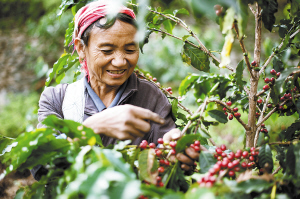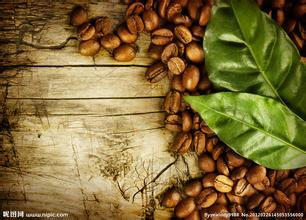Peruvian coffee is 100% organically grown from Arabica varieties
Peruvian coffee is grown in an area with a temperature of 18 ∼ 26 degrees and annual precipitation of 700 ∼ 1500mm. It is made up of Arabica varieties and is certified as an organic farmer by the International Organic crop Development Association (CCIA). A mild, light coffee producer with a mixture of fresh cheese and caramel, with a sweet aftertaste.
Peru S.H.G Organic Coffee | Peru S.H.G Organic
Peruvian coffee grows in the high mountains of the Andes, and this special height has the conditions for producing fresh, aromatic, sweet, medium-textured coffee. Peru has become a producer of organic coffee by benefiting some importers and exporters in order to obtain investment in farms and processing plants that meet the standards of organic farmers. Like coffee in other South American countries, Peruvian coffee is not well known in the coffee market. Large sales organizations in places such as Colombia or Brazil specialize in advertising, but Peru has no strategy for sales or exports. Although the popularity is not very high, it does not mean it is tasteless. Some people think Peruvian coffee is more delicious than Brazilian or Colombian coffee. Flavor characteristics: Aroma | Flavor | Acidity | Sweetness | Body | Aftertaste Roasting Point: Light | Cinamon | Medium | High | City | Fullcity | French | Italian Variety: Cattura, Typica,Bourbon Processing Method: Washed Species: Arabica Flavor: Bright,chocolate, walnut aroma, rich smooth body
Summary: countries on the Pacific Rim of Central South Africa
Capital: Lima (Lima)
Language: Spanish, Quechua, Aymara
Climate: subtropical climate
Religion: Roman Catholic 81%
Population: about 29.18 million (2008)
Production area: Chanchamaya,Cuzco, Las Delicias
Production varieties: Typica, Bourbon,Catttura, Pache, Others
Harvest time: may ∼ November
Planting height: 1200m ∼ 2000m
Grade: S.H.G, H.G
Processing method: Wet-Process
Features: Bright,chocolate, walnut aroma, with rich smooth body and sweet aftertast (imageinsert)

Important Notice :
前街咖啡 FrontStreet Coffee has moved to new addredd:
FrontStreet Coffee Address: 315,Donghua East Road,GuangZhou
Tel:020 38364473
- Prev

Introduction of Ethiopian Coffee beans the characteristics of Ethiopian coffee beans
Various forms of coffee cultivation can be found in Ethiopia: everything from wild coffee forests and semi-developed land to traditionally operated plots to modern plantations. About 50% of the coffee is grown more than 1500 meters above sea level. Harrar coffee is the highest growing area of all coffee in Ethiopia. Hara coffee can be divided into long coffee.
- Next

The practice of fine Kenyan coffee the purchase of Kenyan coffee beans
Coffee entered Kenya in the 19th century, when Ethiopian coffee drinks were imported into Kenya through southern Yemen. But it was not until the early 20th century that the Bourbon Coffee Tree was created by the St. Austen Mission (St). AustinMission) is introduced. Kenyan coffee is mostly grown at an altitude of 1500 to 2100 meters and is harvested twice a year. To ensure that only ripe berries are picked, people must be in the forest
Related
- Does Rose Summer choose Blue, Green or Red? Detailed explanation of Rose Summer Coffee plots and Classification in Panamanian Jade Manor
- What is the difference between the origin, producing area, processing plant, cooperative and manor of coffee beans?
- How fine does the espresso powder fit? how to grind the espresso?
- Sca coffee roasting degree color card coffee roasting degree 8 roasting color values what do you mean?
- The practice of lattes: how to make lattes at home
- Introduction to Indonesian Fine Coffee beans-- Java Coffee producing area of Indonesian Arabica Coffee
- How much will the flavor of light and medium roasted rose summer be expressed? What baking level is rose summer suitable for?
- Introduction to the characteristics of washing, sun-drying or wet-planing coffee commonly used in Mantenin, Indonesia
- Price characteristics of Arabica Coffee Bean Starbucks introduction to Manning Coffee Bean Taste producing area Variety Manor
- What is the authentic Yega flavor? What are the flavor characteristics of the really excellent Yejasuffi coffee beans?

